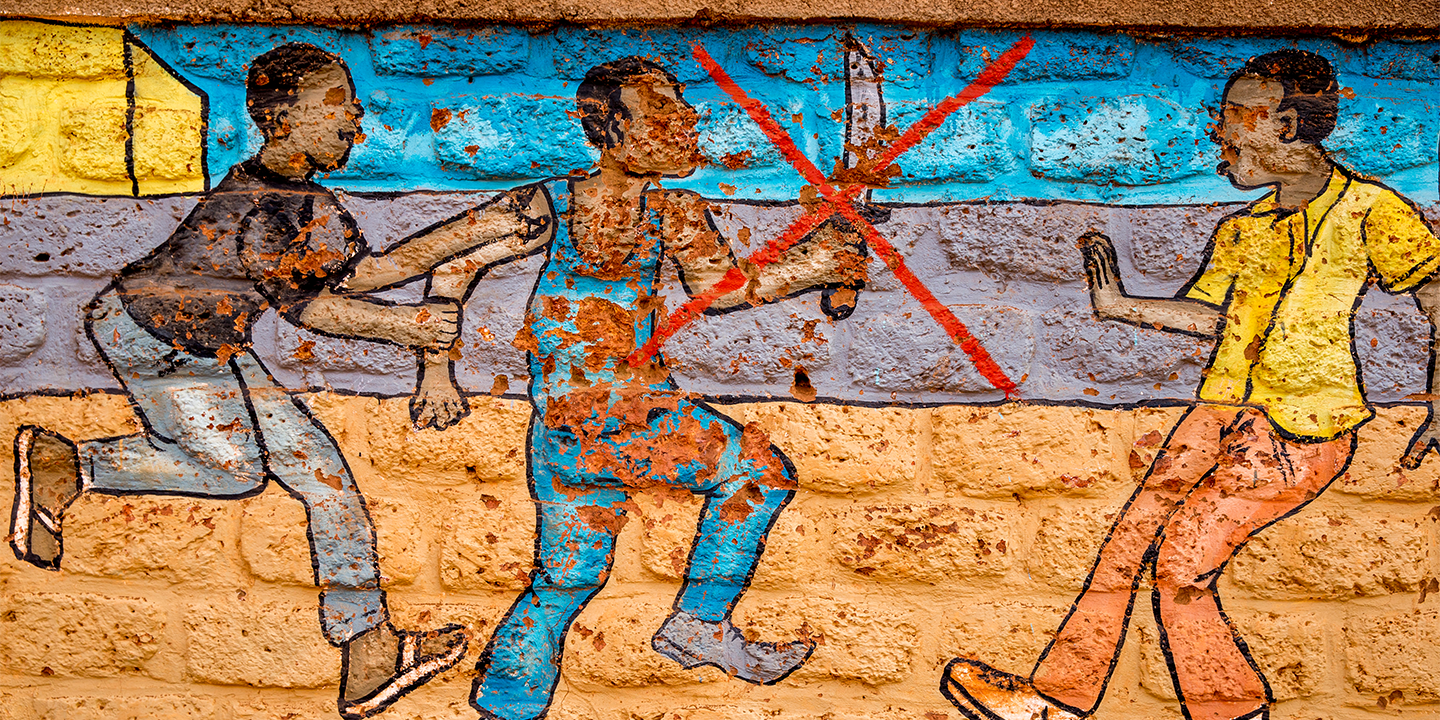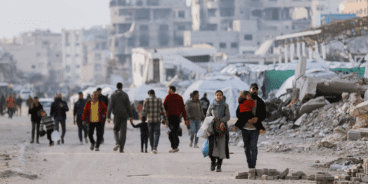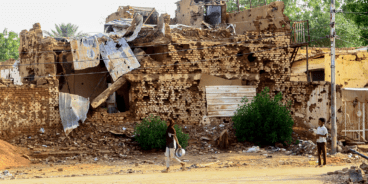

Atrocity Alert No. 381: Central Sahel, El Salvador and Nigeria
Atrocity Alert is a weekly publication by the Global Centre for the Responsibility to Protect highlighting situations where populations are at risk of, or are enduring, mass atrocity crimes.
CIVILIAN CASUALTIES MOUNT AS INSTABILITY CONTINUES IN THE CENTRAL SAHEL
Across the Central Sahel – Burkina Faso, Mali and Niger – insecurity and civilian protection have severely deteriorated as a result of a surge in attacks by armed Islamist groups and abusive counterterrorism operations to confront them. According to the Africa Center for Strategic Studies, there was a 43 percent increase in the number of violent extremist-linked deaths in 2023. In response to the growing threat of armed Islamist groups, national security forces have scaled up counterterrorism operations and at times perpetrated grave human rights abuses and violations against civilians, including war crimes. On 1 February UN High Commissioner for Human Rights Volker Türk said he was “appalled by credible allegations” that the Malian armed forces, accompanied by Russian mercenaries, summarily executed at least 25 people in central Nara region. In Niger, airstrikes targeting suspected members of armed groups reportedly killed at least 15 civilians in the village of Tiawa on 5 January.
In a unilateral decision on 28 January, the military juntas in Burkina Faso, Mali and Niger announced their withdrawal from the Economic Community of West African States (ECOWAS). ECOWAS has been calling for a return to civilian rule, rejecting the lengthy transition plans set by each junta and pressuring them with sanctions. In a joint statement, the three juntas accused ECOWAS of failing to support their fight against “terrorism and insecurity,” while enforcing “illegal, illegitimate, inhumane and irresponsible sanctions” following military coups in each country.
Meanwhile, human rights defenders, journalists and real or perceived critics of the military juntas have increasingly faced reprisals, including threats, intimidation and arbitrary arrests. In recent months, Burkinabé authorities have intensified measures to silence dissent by abusing an April 2023 emergency law to conscript dozens of prominent activists and journalists for counterinsurgency operations. On 24 January Guy-Hervé Kam, a lawyer and political activist, was arrested in Ouagadougou on undisclosed charges, while on 1 December Dr. Daouda Diallo, Secretary-General of the Collective Against Impunity and Stigmatization of Communities and winner of the 2022 Martin Ennals Award for Human Rights Defenders, was forcibly disappeared and is believed to be on the frontline. Nigerien authorities are also increasingly cracking down on press freedom. On 29 January the authorities suspended independent media organization Maison de la Presse after earlier suspensions of Radio France Internationale and France 24 during August.
Christine Caldera, Central Sahel expert at the Global Centre for the Responsibility to Protect, said, “Civilians across Burkina Faso, Mali and Niger are bearing the brunt as violence intensifies and the human rights crisis deteriorates. All armed actors operating in the region must strictly comply with their obligations under International Humanitarian Law. Amid scaled up counterterrorism operations, the militaries must remember their responsibility to distinguish between combatants and civilians. Human rights defenders, journalists and others must not be subjected to harassment, intimidation and violence and the authorities must ensure freedom of expression.”
PRESIDENT NAYIB BUKELE RE-ELECTED AS EL SALVADOR’S HUMAN RIGHTS SITUATION WORSENS
On 4 February presidential and legislative elections were held in El Salvador. While the country’s electoral authorities have reported numerous irregularities leading to a delay in official voting results, on Sunday incumbent President Nayib Bukele claimed himself victorious with more than 85 percent of the vote, noting on the platform X, “a record in the democratic history of the world.”
The elections followed years of the gradual erosion of the rule of law and serious human rights violations under President Bukele. Since taking office in 2019, President Bukele has deliberately dismantled and severely undermined the independence of democratic institutions, including the legislative and judicial branch, amidst systematic threats, harassment and attacks against independent media, civil society and wider civic space. Over the past year, the Legislative Assembly has authorized several electoral reforms which, according to the Washington Office on Latin America, “pave the way for further consolidation of power.” Many observers stated President Bukele’s decision to re-run for President violated the constitution. In 2021 the Constitutional Chamber of the Supreme Court issued a ruling allowing presidents to run for reelection despite El Salvador’s constitution prohibiting an incumbent from running for consecutive terms.
The erosion of democratic space and growing human rights violations have created an environment conducive to the commission of atrocity crimes. In March 2022 President Bukele imposed a state of emergency to allegedly curb a spike in gang violence. Since then, human rights organizations have documented more than 75,000 detentions, often accompanied by torture and ill-treatment, short-term enforced disappearances and the widespread violation of due process rights. The NGO Cristosal has warned that ongoing serious violations and abuses are carried out as a state policy, authorized at the highest level of government, with the deliberate and systematic targeting of a “specific segment of the population, including mostly young residents of communities in conflict,” referring to El Salvador’s soaring levels of violence and insecurity. Cristosal concluded that these violations and abuses may amount to crimes against humanity.
While many Salvadorans have felt safe for the first time in a decade, Bukele’s grip on power, a pervasive culture of impunity and blatant disregard for institutional checks and balances – which helped guarantee him re-election – have the potential to further deteriorate the human rights situation. As governments in the region look to Bukele for inspiration on how to curb urban violence in their own countries, many have remained silent regarding rising flagrant human rights abuses in El Salvador.
Systematic violations are likely to continue in the absence of concerted engagement by UN member states with influence over the Bukele administration. Democratic leaders in the region and beyond should exert bilateral pressure through a combination of confidential, quiet diplomacy and clear and decisive public condemnation to encourage President Bukele to end systematic repression, revert measures and policies that weaken the rule of law and lift the state of emergency.
ESCALATION OF INTER-COMMUNAL VIOLENCE IN NIGERIA’S MIDDLE BELT
From 23-24 January at least 30 people were killed during inter-communal clashes in several villages between the Mangu and Barkin Ladi local government areas in Nigeria’s Plateau State. According to witnesses and survivors, armed men entered Kwahaslalek, Kinat and Mairana villages, among others, and indiscriminately shot at people, including women and children, and set houses ablaze. These latest attacks come amid a recent surge in violence between herder and farmer communities in Plateau State. Between 23-25 December suspected nomadic herders launched a string of well-coordinated attacks targeting at least 20 communities in remote villages, killing at least 190 people and injuring 300 others. According to Reuters, it was the deadliest attack in Plateau State since 2018. President Bola Tinubu strongly condemned the violence during December and assured all Nigerians that “the envoys of death, pain, and sorrow responsible for these acts will not escape justice.”
In a statement on 28 December Amnesty International’s Nigeria Director, Isa Sanusi, said, “The bold failure of authorities to protect the people of Nigeria is gradually becoming the norm. President Bola Tinubu promised to enact security measures in response to these attacks, but so far, these promises have proven to be empty.” While military forces were deployed to the affected areas since the attacks in December, local communities reportedly felt unprotected and questioned why the forces did not intervene to stop the latest violence.
Although the cause for the latest violence remains unclear, recurring conflict between herders and farmers in Nigeria’s Middle Belt region is often rooted in historical grievances over land use and resource allocation. These disputes have been exacerbated by climate change, expanding agriculture and growing desertification in northern Nigeria, which have driven many ethnic Fulani herdsmen, who are mainly Muslim, southward into areas traditionally farmed by settled communities that are predominately Christian. The competition for resources has resulted in herder-farmer violence and exacerbated religious and ethnic tensions.
The Nigerian government must address the root causes of inter-communal violence in the Middle Belt through socio-economic initiatives and political reforms that tackle land rights and poor governance. The governmental Plateau Peace Building Agency must enhance its conflict prevention and peacebuilding interventions in Plateau State. The government should also expand efforts to mitigate the effects of climate change, including by accelerating regional initiatives aimed at restoring environments affected by drought and desertification. The government must strengthen security sector reform to ensure that the police and military are sufficiently trained to prevent and respond to atrocities, as well as extend the presence of the military and police forces to communities at risk of reprisals and future attacks.
Related Content


Atrocity Alert No. 433: Israel and the Occupied Palestinian Territory, Myanmar (Burma) and Mali
